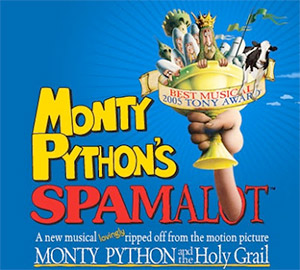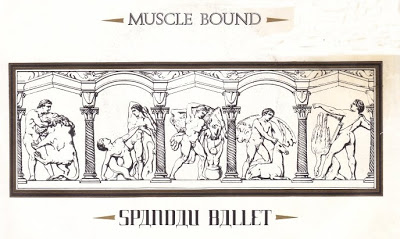Where there’s a hit, there’s a writ
Heartbroken That’s presumably how the defendants must feel in the case of Henderson v All Around The World Recordings Ltd [2013] EWPCC 7 after Judge Birss QC, sitting in the Patents County Court last week, upheld a claim by the singer Jodie Aysha for a share in the royalties from her hit song of that
Heartbroken
That’s presumably how the defendants must feel in the case of Henderson v All Around The World Recordings Ltd [2013] EWPCC 7 after Judge Birss QC, sitting in the Patents County Court last week, upheld a claim by the singer Jodie Aysha for a share in the royalties from her hit song of that name.
And it just goes to show the truth of the old adage: Where there’s a hit, there’s a writ
.
Of course, you can’t say that now. Since the advent of the Civil Procedure Rules in 1998 you have to call it a claim form, not a writ, which doesn’t have quite the same proverbial ring, let alone rhyme. But the truth of the adage hasn’t changed, as this and other recent cases show.

Jodie Henderson, who goes by the stage name of Jodie Aysha, was only 14 when she wrote the lyrics for the hit song “Heartbroken”, inspired by her sister’s breakup with a boyfriend. Soon after, she met and began working with a musician and DJ, Tafazwa Tawonozvi, better known as T2, who recorded her singing “Heartbroken” and then remixed her vocals with his own “bassline” backing. The track became an unofficial hit in clubs before being taken up by the defendant record company, All Around the World Recordings Ltd, based in Blackburn. Released in November 2007, it was a big hit, reaching No 2 in the charts and remaining in the top 40 for 46 weeks.
T2 had by then signed with another record company, 2NVRecords Ltd (the third party in the action), and the defendant had negotiated the rights with them. They in turn offered the claimant a “derisory” £1,500 for her vocal performance but she refused and no contract between her and 2NV was ever concluded. Relations between the claimant and T2 had deteriorated. She signed a publishing deal with Sony/ATV Music Publishing (UK) Ltd, who consented to the release of a video of the song in which they encouraged her to take part, though she did so under protest.

The claimant received no record royalties nor was she paid for her participation in the promotional video or for the use of her name on the artwork. There was a separate dispute over the proportions of the musical copyright to which she and T2 were entitled, but the dispute with the defendants was about her rights as a performer on the record. She claimed the record was released without her consent, in breach of her rights as a performer. The defendants denied the claim, but protected their position by issued a CPR Part 20 claim against the third party, 2NV.
As the judge indicated, the case boiled down to a simple issue of fact. Did she consent to the copying of her performance? If not, then by virtue of section 182A of theCopyright Designs and Patents Act 1988 (as amended), her performer’s rights were breached. The fact that she may have consented to the original recording by T2 was irrelevant: see Bassey (Shirley) v Icon Entertainment [1995] EMLR 596, 606, per Sir John Vinelott. In fact, she claimed not to have consented, but the judge preferred T2’s evidence on this issue. But when T2 went on to deal with 2NV, he did not have and could not give her consent, and 2NV could not give it to the defendant. The defendant knew or ought to have known of her lack of consent and, by releasing the single, infringed her performer’s rights.
This means Jodie Aysha can expect to receive what The Times described as a substantial share of the song’s estimated six-figure profits
. She was reported elsewhere as saying: It proves that if you keep fighting, then the little person can sometimes win.
What it also proves is (altogether now):
Where there’s a hit, there’s a writ.
And now for something completely different: a claim for a bigger share in the royalties of a successful musical venture.
Judgment is still awaited in another case, heard before Christmas, in which the Pythons who created the hit musical Spamalot are being sued by the producer of the film Monty Python and the Holy Grail (on which the musical is based) for a bigger share in the royalties from the stage show.
In Forstater and another v Python (Monty) Pictures Ltd and another the producer Mark Forstater claims to be entitled to an equal share of the “Spamalot millions” with the six original Pythons on the grounds that he was, in essence, the seventh Python
in creating the 1975 film on which the musical is based. According to his counsel, the Pythons were unjustifiably attempting to secure more money from Spamalot at the expense of Mr Forstater and his company
.
 Three of the surviving Pythons, Eric Idle, Michael Palin and Terry Jones, turned up to give evidence in the High Court before Norris J. Idle told the court it was
Three of the surviving Pythons, Eric Idle, Michael Palin and Terry Jones, turned up to give evidence in the High Court before Norris J. Idle told the court it was laughable
to describe Forstater as the seventh Python
, though presumably not as hilarious as some of the gags in the show. Palin denied that the producer had created the film and Jones said We dictated what went on.
However, the fact that Idle’s poster wording for Spamalot describes it as having been lovingly ripped off
from the Holy Grail film (see image) might appear to support the claimant’s position.
And now for something completely different (contd): a claim for a bigger share in the royalties of a successful musical venture.
These two recent cases are only the latest in a long tradition of claims that tend to follow that same old song. In the last decade or so they have involved some of the biggest names in popular music, such as Procol Harum, The Smiths, Spandau Ballet and Oasis.
People who lived through the period often say that if you can remember the Sixties, you weren’t really there
. Well, everyone remembers A Whiter Shade of Pale
, not least because it continues to be played in the background to every nostalgic programme about those not very long forgotten Sixties.
 Fisher v Brooker is a case which perfectly demonstrates the value of a different kind of history, viz the
Fisher v Brooker is a case which perfectly demonstrates the value of a different kind of history, viz the appellate history
feature of Citator+ on ICLR Online, which shows how the status of decisions changes as the case proceeds through the appellate system.
At first instance, Blackburne J [2006] EWHC 3239 held that organist Matthew Fisher had, by contributing a substantial and distinctive Bach-like solo
to the original composition, become a joint author in the hit single, and was entitled to a 40% share in the musical copyright.
The case then went to the Court of Appeal [2008] Bus LR 1123, who affirmed the judge’s decision that Fisher had become a joint author but allowed the appeal (by a majority) against his decision that Fisher was entitled to damages for breach of contract, or to any share in the writing royalties, because of his long delay in bringing the claim.
On a further appeal, however, the House of Lords [2009] 1 WLR 1764; [2009] Bus LR 1334 reversed the latter ruling and held that he was entitled to recoup a share of royalties against composer Gary Brooker and Onward Music Ltd, who could not rely on estoppel, laches or acquiescence to defeat the claim. (Whatever “Procol Harum” means in Latin, it can’t be translated as let sleeping claims lie
.)
In Joyce v Morrissey [1999] EMLR 233, The Smiths singer Morrissey and guitarist Johnny Marr were successfully sued by drummer Mike Joyce for a quarter share in the group’s performing profits. The Court of Appeal upheld the judge’s decision that, as a partnership, the members of a popular beat combo can expect to share performing royalties equally unless otherwise agreed: see section 24 of the Partnership Act 1890. Morrissey was unable to rebut the presumption. As usual in such cases, any so-called agreements on how the money was to be split were not even worth the paper they weren’t written on. (This didn’t affect composing profits, which all went to Morrissey and Marr as songwriters.) Morrissey had his day in court, and lost. Heaven knows he’s miserable now – but he’s not alone.
Following Mike Joyce’s claim another drummer, Tony McCarroll, who had been sacked by Oasis some years before, won £600,000 in settlement of his (much larger) claim for a fifth of the group’s profits during his time with them.
Publishing royalties were also the subject of dispute in Hadley v Kemp [1999] EMLR 589. Singer Tony Hadley and other members of Spandau Ballet sued the songwriter, Gary Kemp, for a bigger share in the profits based on alleged breach of an oral agreement. Park J held that the claimants had failed to establish either the existence of such an agreement or joint authorship of the songs. He also found that any contributions by them, such as additional instrumental fills or riffs, did not entitle them to a share in the copyright (in the way that Matthew Fisher was eventually able to establish a decade later).

Kemp: he may have been Musclebound, but he was not duty bound
.
And so it goes on. Claims against managers, claims against record companies, claims against other performers. It got so bad at one time that people were saying litigation was the new rock’n’roll.
How could it be? They’ve been doing it for years.
And now for the chorus (altogether now):
Where there’s a hit, there’s a writ
Where there’s fame, there’s a claim
Where there’s a will, there’s a way
… for a lawyer to win the day!
POSTSCRIPT: Spamalottaroyalties
Giving judgment on 5 July 2013, Mr Justice Norris upheld Mark Forstater’s claim to an equal share with Python comedy team members in the merchandising and spin-off income in relation to the Holy Grail film, including that arising from the Spamalot musical. See Forstater v Python (Monty) Pictures Ltd [2013] EWHC 1873 (Ch); [2013] CN 1052.